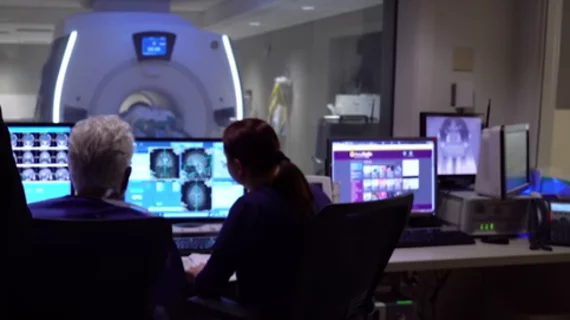Helping hands: Widening access to focused ultrasound in US reduces essential tremors
A Pennsylvania farmer suffering from essential tremor in both hands recalled how his experience of undergoing focused ultrasound treatment was risky but ultimately worth it, according to a July 9 article by NPR.
The non-invasive treatment, approved by the FDA in 2016, reduces tremors by sending high frequency sound waves through a patient's skull to destroy designated brain tissue—all while the patient is inside an MRI scanner.
For Alan Dambach, the treatment made the tremor in his right hand completely disappear with no complications.
Focused ultrasound is currently only used to target one side of the brain, which equates to one hand or one side of the body that can be treated. Risks from the treatment, however, include experiencing numbness and having trouble with balance. Additionally, many U.S. insurers do not cover the cost of the procedure, but the number is steadily rising, according to the article.
"So far, more than 1,000 essential tremor patients around the world have been treated with focused ultrasound," Maurice Ferré, MD, CEO of Insightec—the company that makes the focus ultrasound device used to treat Dambach—told NPR. "But that number is likely to increase as more centers in the U.S. begin offering the procedure and more states approve Medicare payment for it. Right now, Medicare covers the treatment in 16 states, though coverage is pending in many more."
Read more at the link below:

